SABR 45 Walking Tour of Chicago Baseball History
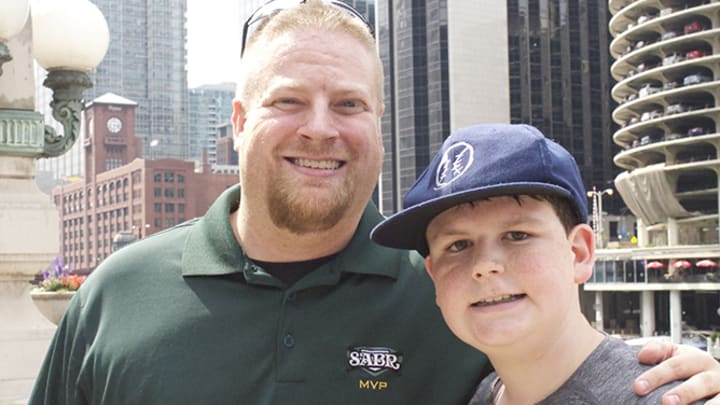

The tour began at the Palmer House, a very famous hotel where the conference is being held. It was first built as a wedding gift for a businessman and his wife. The hotel first was opened to guests in November 1873. Since then, artists, presidents, movie stars, and jazz performers have stayed here. It has enormous paintings and other works of art around the hotel, which just add to its elegance.
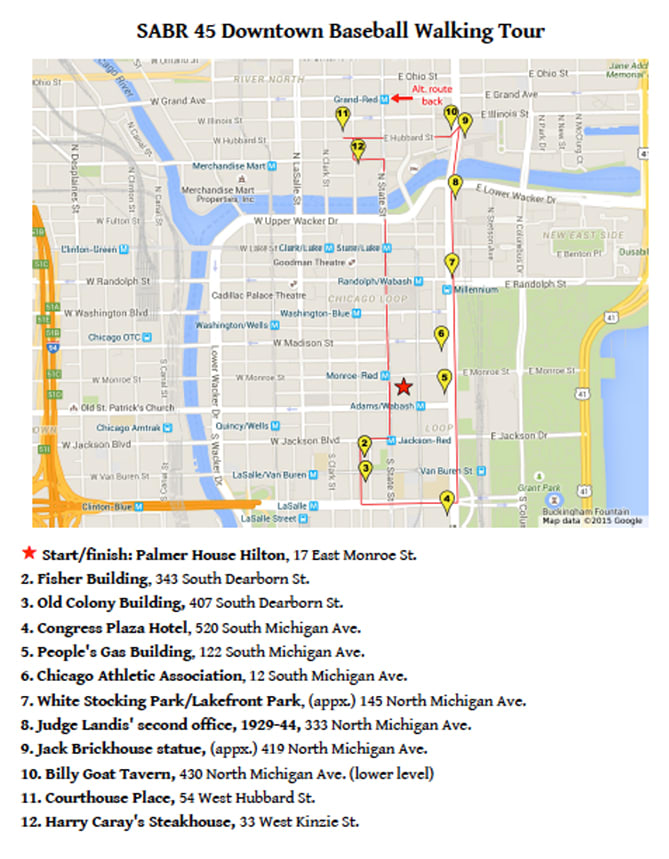
Here is a map of the SABR 45 Baseball Walking Tour, in case you visit Chicago and want to visit these landmarks on your own.
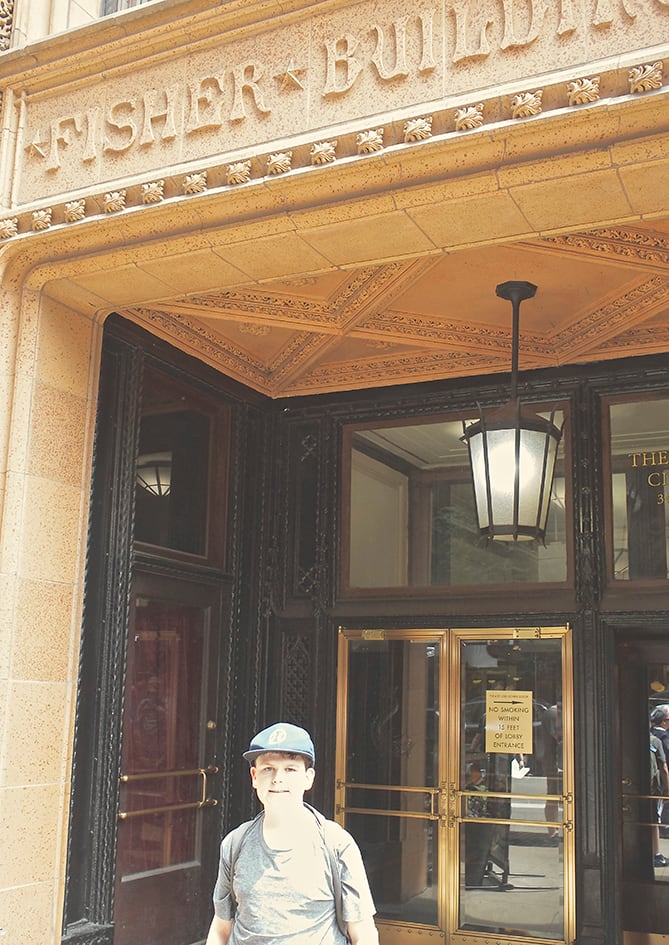
The first stop on the tour was called the Fisher Building. This is where Charles Comiskey decided that he would create a league to rival the National League, forming what we now call the American League.
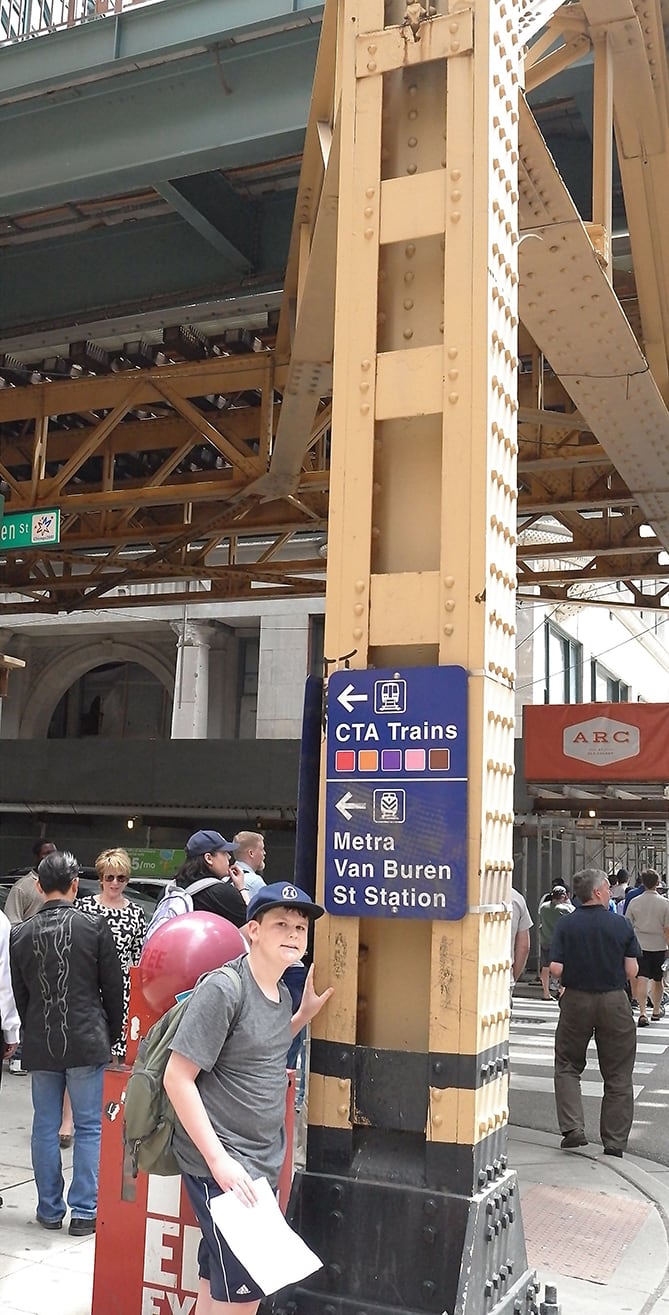
Next, we visited the Old Colony Building. This building is known for being the tallest building in Chicago at the time that it was built. It was also the place where the Federal League was founded. The Old Colony was just across the street from the office of MLB Commissioner Ban Johnson, but the Federal League ran out of money after just two years.
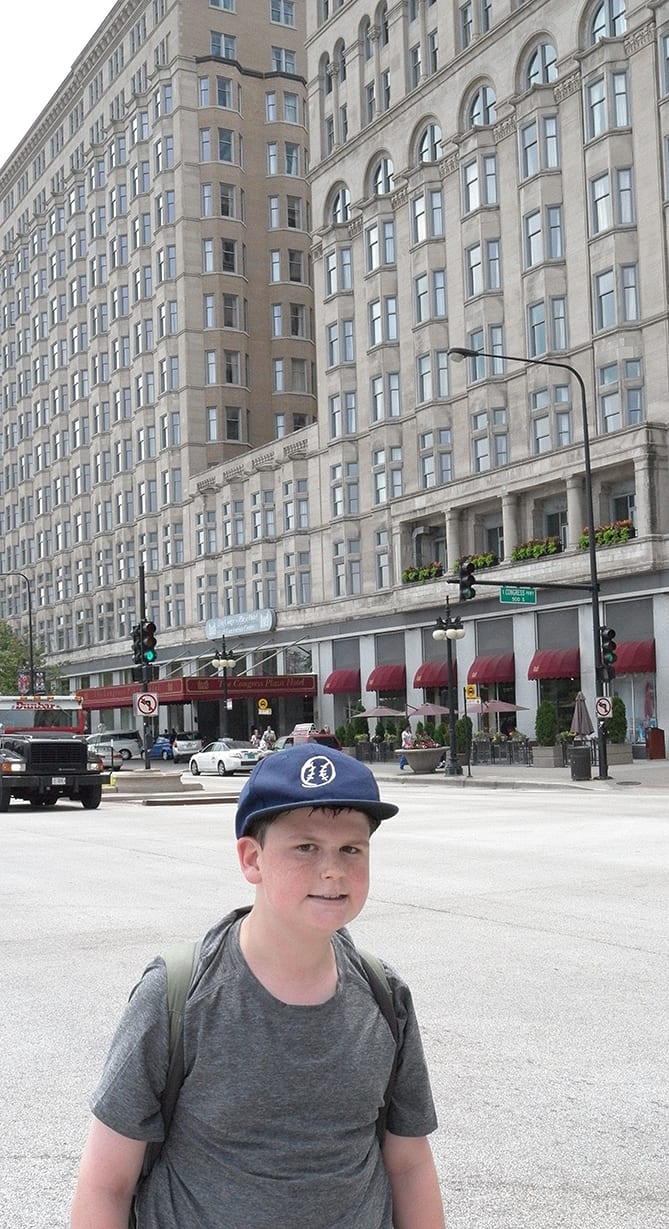
Our next stop was the Congress Plaza Hotel. This place is known as the "House Of Presidents" and is the place where many important players or baseball figures stayed and important meetings happened. It was also the site one of the most important scams in baseball history: the Black Sox scandal. In this building, the final negotiations were made for the 1919 series to be thrown.
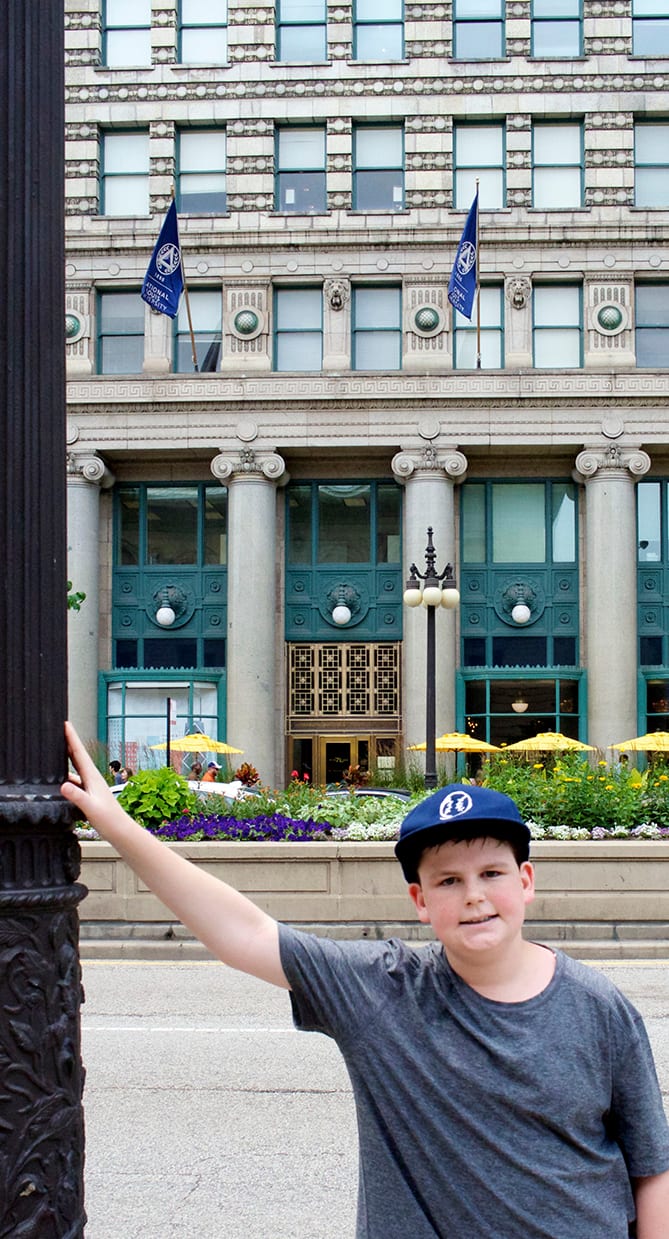
Next, we moved onto the People's Gas Building, where Judge Kenesaw Landis oversaw the Black Sox investigation and who eventually became the first baseball commissioner. Speaking about the Black Sox, it was in this building that Landis decided to ban players, like Shoeless Joe Jackson, accused of throwing the World Series from the Hall Of Fame.
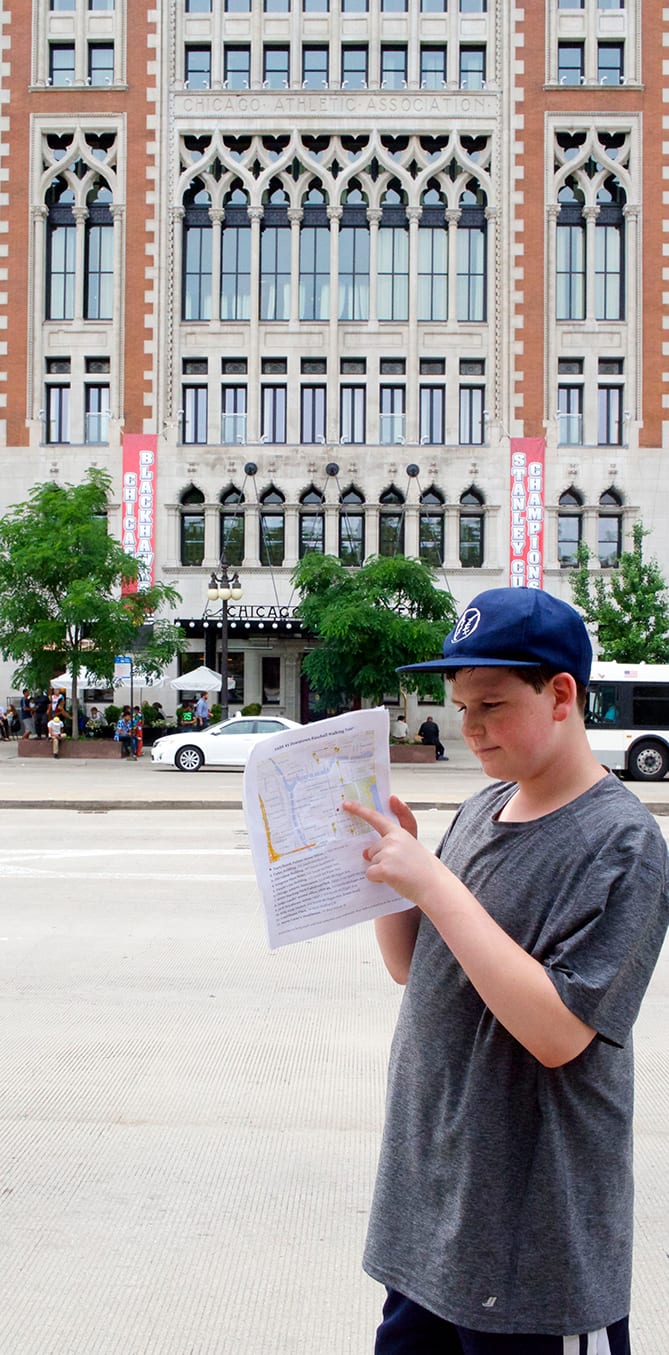
Our next landmark was the Chicago Athletic Association. Founded in 1890, it was built by by a non-profit organization for athletic and other activities and became a place for Chicago teams to practice for centuries. After closing in 2007, it just reopened as a hotel. If you look closely you can see the logo of the Association, which was the basis for the Cubs logo.
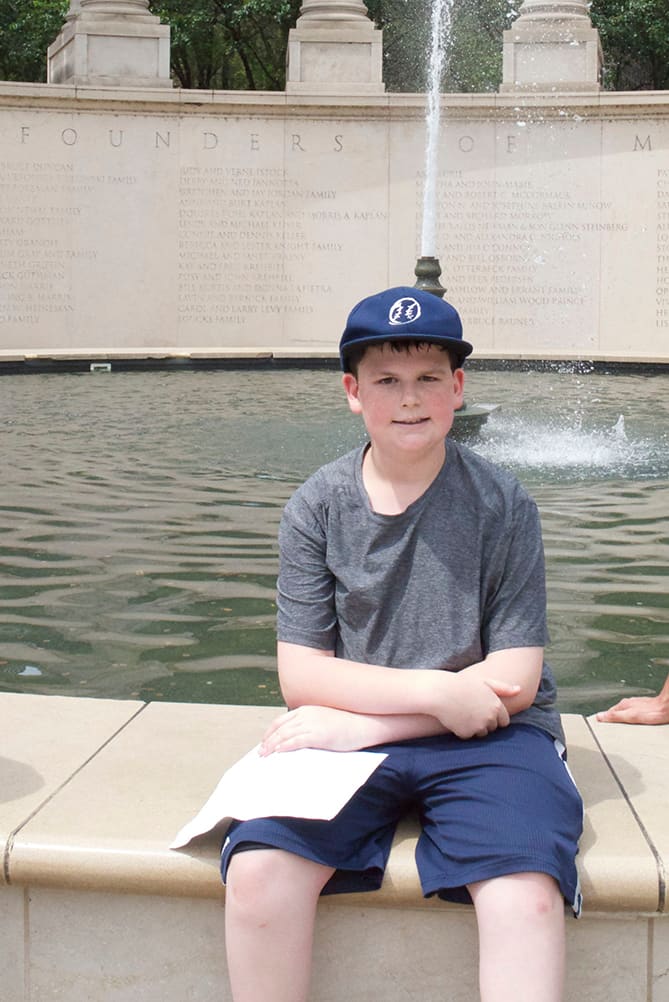
The next stop was White Stocking Park, also known as Lakefront Park, which had a great layout for lots of home runs. This is where the Chicago White Stockings, Chicago's first pro baseball team, played their games. As you might expect, the White Sox's name originated from this late 1800s team. Now it is where Millennium Park is located.
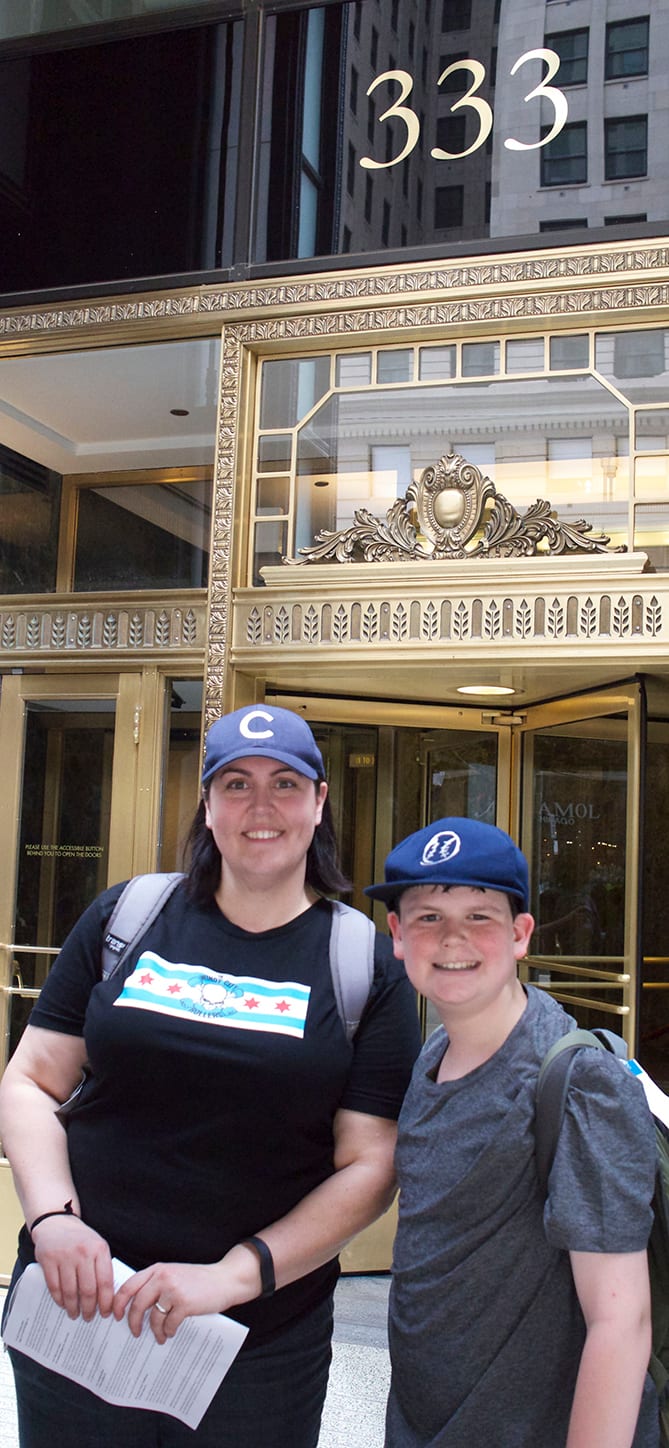
Next, we visited Judge Landis' second office. This place's name is self-explanatory. Landis was in this modern building during the second half of his time as commissioner, and he created new aspects to the sport like night games and the All-Star Game. He also worked with President Franklin Roosevelt to keep baseball going during World War II so that people would have as a distraction from the fighting.
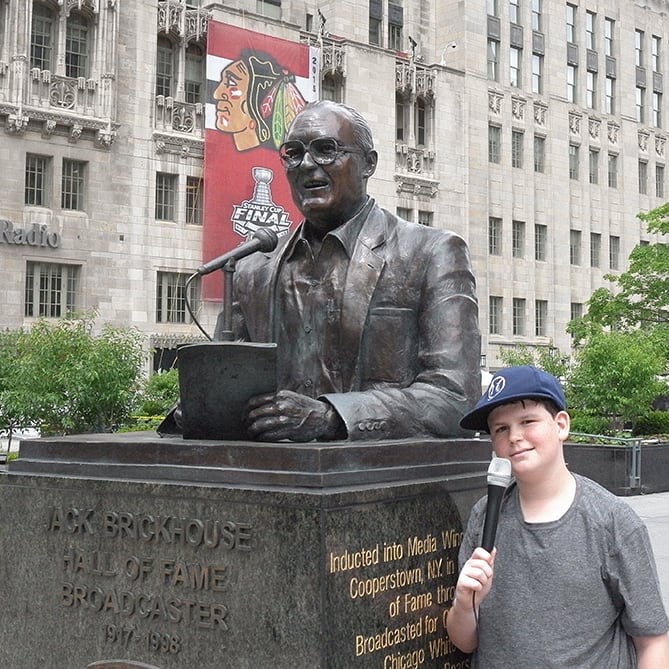
Next on the tour was a statue of Jack Brickhouse. Brickhouse was one of Chicago's most famous broadcasters. During the 1940s, he called White Sox games on WGN until he moved to the station's Channel 9 on TV in 1948. He went on to broadcast games for both the Cubs and the White Sox. It's cool that the statue is near where WGN and the Chicago Tribune (the newspaper) are still located. That's them right there behind the statue.
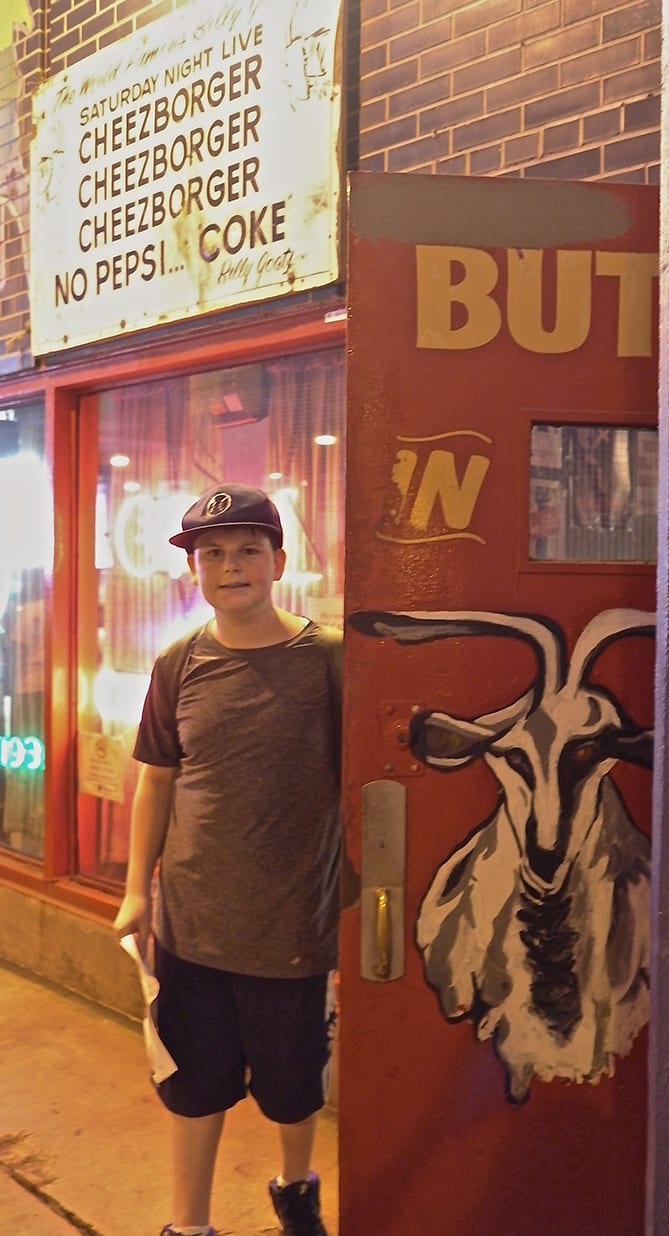
The next stop was the Billy Goat Tavern, which is located under the tracks of the El, or the elevated subway system that brought (and brings) people from all over the city to this central part of town. This tavern is named after a curse that has haunted the Cubs for years. Legend has it that in 1945, the Cubs owner brought a goat to a Cubs World Series game. After fans complained of the smell, he was escorted out. Angry, he declared that there would never be a World Series played at Wrigley Field again. The Cubs lost their lead in that game and the series, and since that day the Cubs haven't been back to the World Series.
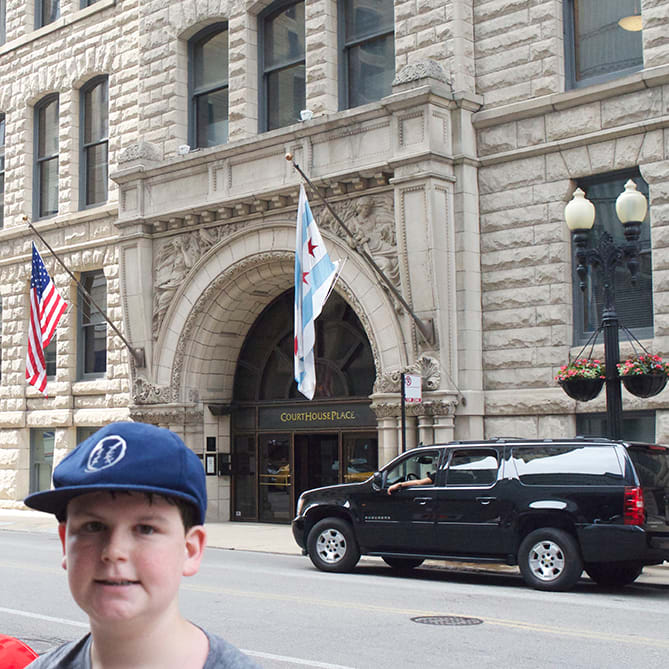
Next, we visited the Courthouse Place. This is where the hearings were held for what occurred in the Black Sox scandal.
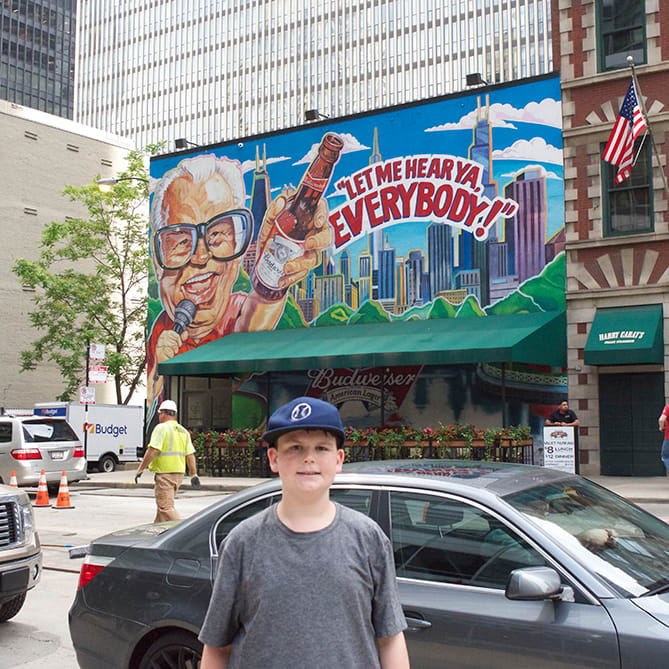
Finally, we visited the legendary Harry Caray Steakhouse. Caray was a legendary Cubs broadcaster, known for his tradition of serenading fans with his "Take Me Out To The Ballgame" during the seventh inning stretch. He left such a mark on Chicago that he even has a steakhouse named after him, among other places and objects.
